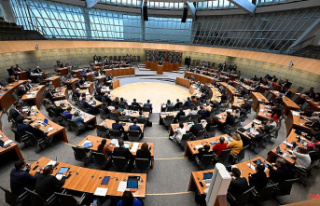Düsseldorf (dpa / lnw) - North Rhine-Westphalia's pharmacies complain about ongoing supply bottlenecks for a number of medicines. These include fever syrups for children, gastric acid blockers, cough syrups and blood pressure medication. The problems have increased in recent months, said the chairman of the North Rhine Pharmacists' Association, Thomas Preis, in Düsseldorf. "The situation is dire." Looking ahead to 2023, he says: "We expect supply deficits to increase." A spokesman for the Federal Union of German Pharmacists' Associations (ABDA) spoke of a "great challenge" that one has in view of the bottlenecks and that will remain in place for the foreseeable future.
The ABDA justifies the tense situation with the "enormous cost pressure in the healthcare system". To save money, manufacturers rely on production in Asia, said a spokesman. If a batch fails there or the ship transport is delayed, this has consequences for the local supply.
The Westphalia-Lippe Association of Pharmacists announced that there are currently supply bottlenecks for cough medicine with codeine, antieleptics, several antibiotics and strong painkillers. The Internet also plays a role: A spokeswoman for the association reports that the drug Elotrans, which is suitable for diarrhea, is being advertised on social media as an alleged anti-hangover drug. Result: According to the information, there are also bottlenecks here. That is "extremely worrying".
So what to do? The Pharmacists' Association of Westphalia-Lippe demands: "In order to get supply bottlenecks under control, the production of active ingredients and medicines must again take place in the EU under high environmental and social standards."
The Federal Institute for Drugs and Medical Devices (BfArM) currently lists around 300 reports of supply bottlenecks - with around 100,000 approved drugs in Germany. However, the authority points out that there are a number of imitation drugs with the same active ingredient for many scarce drugs. A delivery bottleneck does not have to be a supply bottleneck at the same time.












